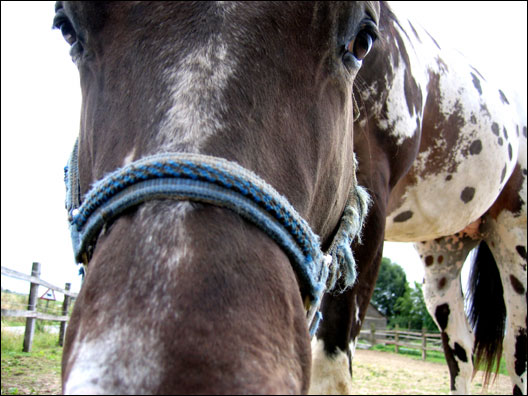What is your horse trying to tell you? It might be easier to determine than you may think. Central Florida Ag News took a trip around the stables with Dr. Saundra TenBroeck, state extension horse specialist at the University of Florida, to learn more about horses’ various behaviors and how owners can help ease any unnecessary stress.
Central Florida Ag News (CFAN): How does a horse show their different emotions, like boredom, sadness, pain, sleepy, etc.?
Dr. Saundra TenBroeck: What you are calling emotions are actually classical behaviors of horses. One key element behind the natural behaviors of horses is that the species is designed to live in small groups, and to eat and move. They will graze more than 60 percent of the day, given the opportunity. Horses pass through three phases of sleep: 1) drowsy (standing at rest), 2) slow wave (sleep of the mind but standing or lying sternally), and REM (Rapid Eye Movement during which the horse must lay down as there is no muscle tone). The bouts are relatively short and REM almost always happens at night. Horses do yawn, too!
CFHN: What are some of the boredom signs to look out for?
Dr. TenBroeck: Observation of horses will give you a lot of information about what they are doing, how they are feeling and, often, their intentions. Horses are very expressive with their ears and their tails, much like a cat. Boredom often is the result of lack of sufficient forage/roughage and insufficient activity. Some horses will develop vices or stereotypes when they are bored, such as wood chewing, weaving, stall or fence walking, wind sucking, etc.
CFHN: How can I help improve my horse’s “bad attitude”?
Dr. TenBroeck: There is an old saying, “A horse by himself is in bad company.” Plenty of hay or grass, exercise, and a pasture buddy are the primary “happiness” promoters for horses.
CFHN: Does my personality/manner affect my horse’s moods?
Dr. TenBroeck: It can. Horses react to the people working with them. As a herd animal, they often reflect the attitude of the others in the herd. That can transfer to a handler as well.
CFHN: If I don’t do anything to improve my horse’s mood, what might happen?
Dr. TenBroeck: Horses’ moods will change throughout the day, whether or not you do anything. Owners should focus on meeting a horse’s NEEDS and not overanalyze. Horses are wired to fight or flight. Put in a scary situation, their natural tendency would be to react. We can “habituate” horses to situations that are not necessarily normal by training. Horses do well with routine and normalcy.
CREDIT
story by CENTRAL FLORIDA AG NEWS

